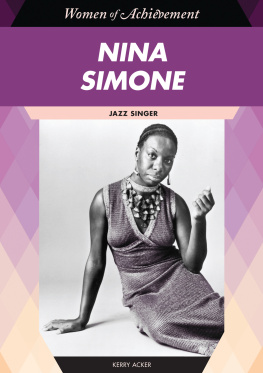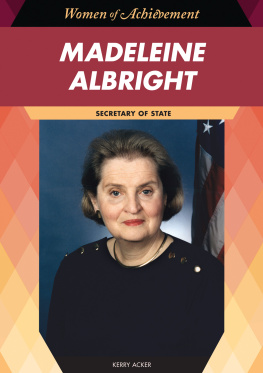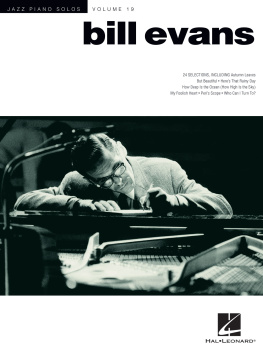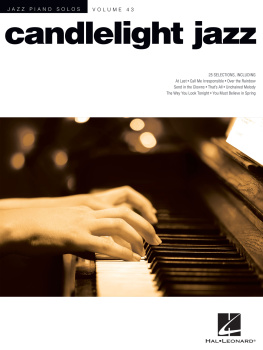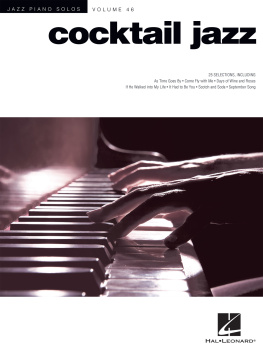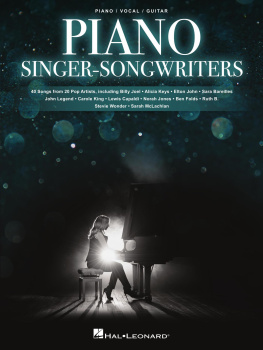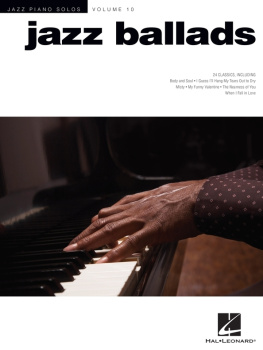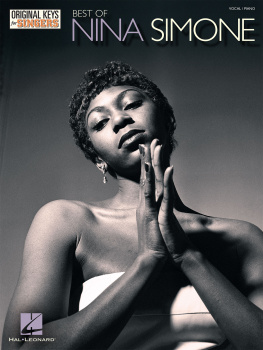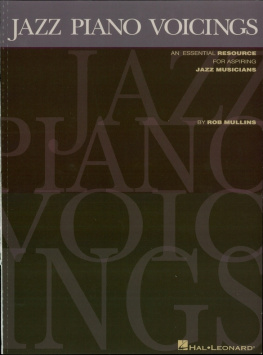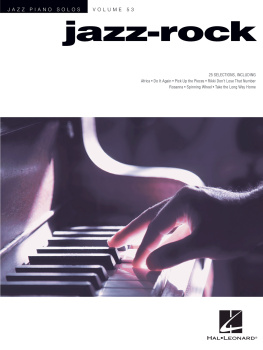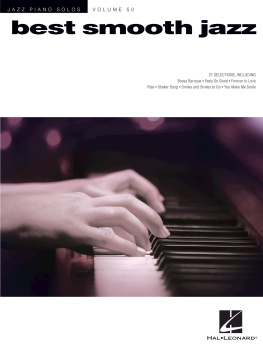Kerry Acker - Nina Simone: Jazz Singer
Here you can read online Kerry Acker - Nina Simone: Jazz Singer full text of the book (entire story) in english for free. Download pdf and epub, get meaning, cover and reviews about this ebook. year: 2014, publisher: Infobase Publishing, genre: Non-fiction. Description of the work, (preface) as well as reviews are available. Best literature library LitArk.com created for fans of good reading and offers a wide selection of genres:
Romance novel
Science fiction
Adventure
Detective
Science
History
Home and family
Prose
Art
Politics
Computer
Non-fiction
Religion
Business
Children
Humor
Choose a favorite category and find really read worthwhile books. Enjoy immersion in the world of imagination, feel the emotions of the characters or learn something new for yourself, make an fascinating discovery.
- Book:Nina Simone: Jazz Singer
- Author:
- Publisher:Infobase Publishing
- Genre:
- Year:2014
- Rating:5 / 5
- Favourites:Add to favourites
- Your mark:
- 100
- 1
- 2
- 3
- 4
- 5
Nina Simone: Jazz Singer: summary, description and annotation
We offer to read an annotation, description, summary or preface (depends on what the author of the book "Nina Simone: Jazz Singer" wrote himself). If you haven't found the necessary information about the book — write in the comments, we will try to find it.
Eunice Waymon was a prodigy on the piano, but it was only through charity that she could be trained classically. Her career in song began by chance, but she went on to creat
Nina Simone: Jazz Singer — read online for free the complete book (whole text) full work
Below is the text of the book, divided by pages. System saving the place of the last page read, allows you to conveniently read the book "Nina Simone: Jazz Singer" online for free, without having to search again every time where you left off. Put a bookmark, and you can go to the page where you finished reading at any time.
Font size:
Interval:
Bookmark:
Copyright 2014 by Infobase Learning
All rights reserved. No part of this publication may be reproduced or utilized in any form or by any means, electronic or mechanical, including photocopying, recording, or by any information storage or retrieval systems, without permission in writing from the publisher. For more information, contact:
Chelsea House
An imprint of Infobase Learning
132 West 31st Street
New York NY 10001
ISBN 978-1-4381-5336-0
You can find Chelsea House on the World Wide Web
at http://www.infobaselearning.com
Was she really a jazz singer? Was she more soul singer, blues singer or pop troubadour? She was all that and then some. Her craft ranged all over the black music map and beyond; she even found a home in Broadway songs. As Duke Ellington was fond of saying about artists he appreciated, she was "beyond category."
Willard Jenkins of Africana.com, April 22, 2003
Nina Simone's voice was unmistakable, moving from a seductive croon to a harsh growl, able to send shivers down your spine.
Emma Griffiths of Australian Broadcasting
When Nina Simone stepped onto the stage of New York City's Carnegie Hall on June 28, 2001, the audience sprang to its feet, erupting into raucous, wild applause. Fans ran up to the stage, crying out praise and showering the singer with flowers. Sixty-nine years old, wearing a floor-length gown of sparkling white, the eccentric and much-loved diva had to be assisted onto the stage. Yet she was the most anticipated act in the 2001 JVC Jazz Festival.
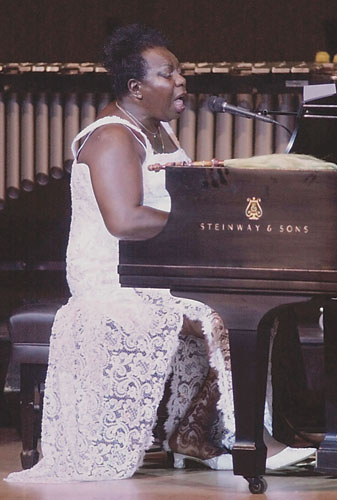
Simone at Carnegie Hall, 2001. At the time of this concert, Simone had been performing for almost half a century. She had progressed from a shy but gifted child to a music teacher, a lounge singer, a featured performer, an activist for civil rights, and an acknowledged queen of the American music industry. Her career had been influenced by the great anger she felt about the state of race relations in the United States, though, and she had developed a reputation as a "difficult" performer.
Source: Associated Press, AP/Mark Lennihan.
At the conclusion of Simone's brief but characteristically mesmerizing performance, a woman leaving the festival remarked, "Well, she certainly can still command an audience." (The New York Times, July 2, 2001) Indeed, the woman known as the High Priestess of Soul had long ago established her reputation as a compelling and powerful live performer who held her audience enthralled.
After opening with her beloved classic "My Baby Just Cares for Me," Simone dedicated her program to "my ancestors Marcus Garvey, Langston Hughes, Lorraine Hansberry, Stokely Carmichael, and Paul Robeson." Throughout the show, her adoring public screamed, "We love you, Nina!" She responded, "I love you, too, sugar." When they yelled out their requests all at the same time, though, she reprimanded them: "I can't understand all of you at once. Say it again, but only one at a time."
And Simone couldn't help adding her thoughts about contemporary American politics when she performed "Why? (The King of Love Is Dead)" her own moving tribute to the assassinated civil rights leader Martin Luther King, Jr. According to a July 5, 2001, review in the New York Amsterdam News, Simone added the following:
It's a goddamn shame Martin Luther King is dead.We're heading for the break with Bush in the White House.
That man has got to go.
When she'd finished a stirring rendition of another of her own songs, the movingly funky "Four Women," Simone departed the stage to applause and foot stomping that raged on for about twelve minutes, after which the grande dame returned and sang a quick reprise of the opening number. She left the stage again, and the applause lasted another quarter of an hour. When she returned a second time, she proclaimed in signature Simone style, "I have no more to give you people; go the hell home." Her obedient congregation reluctantly but instantly obeyed.
Nina Simone: classically trained pianist, uncannily skilled improviser, elegant entertainer, gifted interpreter of others' songs, talented songwriter, outspoken militant, bitter expatriate, always a controversial figure. Like the woman herself, her music cannot be categorized easily: The Simone sound fused elements of classical, pop, jazz, gospel, folk, rhythm and blues, and soul. Vocally, she was incomparable. "Simone's moody-yet-elegant vocals are like no one else's, presenting a fiercely independent soul who harbors enormous (if somewhat hard-bitten) tenderness," writes music critic Richie Unterberger. (Erlewine, 1020) Her live performances were legendary for their passion and immediacy. John S. Wilson of The New York Times wrote of her live version of the song "Everything Must Change" that "[i]t grew in the classic Simone manner from a mumble and a quaver through an intense, breathy declaration, swelling to a shout that burst into gospel excitement that swept the audience into the performance." (Brennan, 228)
Her intense commitment to her music was matched only by a fierce dedication to social justice. In the mid-1960s, Simone, then a young African-American woman from North Carolina, was among the first popular performers to sing about racism. She regularly appeared at civil rights fundraising events and marches, and she openly supported the Freedom Fighters and other activists on the front lines. One of her original songs, "Mississippi Goddam," became an anthem for the civil rights movement. But as she grew more militant in the late 1960s and the 1970s and became involved with radical groups such as the Black Panthers, her controversial politics threatened to overshadow her gifts as a musician and entertainer. The songs she wrote became angry and impassioned, and she spoke bluntly about her uncompromising views on racial equality. Nina Simone did not hesitate to voice her opinions, regardless of the effect they might have on her career. Analyst Brian Ward remembers the influence she had on the movement: "There was a self-possessed assurancecritics would call it arrogance and bloody-mindednessabout Simone; an independence of mind, spirit and action which seemed both refreshing and inspirational. It was this combination of message, music and manner which made her such a potent figure for the movement." (Ward, 301)
In the 1970s, as her disillusionment with American racial attitudes intensified, so did her disgust with the entertainment industry. She abandoned the music business (temporarily) and went into self-imposed exile from her country of birth, living in Barbados, Liberia, Switzerland, and Holland before finally settling in the south of France. But her recordings continued to attract legions of fans, people who were captivated by her singular approach to music and her amazing ability to transform a song into an almost religious experience.

The High Priestess of Soul. Simone's involvement with the civil rights movement came to characterize her work almost as much as her melancholy songs of disappointed love. The depth of her commitment led fans to dub her "The High Priestess of Soul"a name with which she was never comfortable. Simone resisted labels throughout her career.
Source: Bettmann/Corbis.
Over the years, Simone gradually returned to recording and giving performances, and her career experienced a resurgence in the late 1980s and the 1990s. By the turn of the millennium, with a new generation of fans, Simone's music had become more popular than ever. Her records, old and new, were selling well, and tracks from her albums were being traded through peer-to-peer file-sharing networks. Her songs have been featured on several film soundtracks and in commercials in the United States and abroad.
Font size:
Interval:
Bookmark:
Similar books «Nina Simone: Jazz Singer»
Look at similar books to Nina Simone: Jazz Singer. We have selected literature similar in name and meaning in the hope of providing readers with more options to find new, interesting, not yet read works.
Discussion, reviews of the book Nina Simone: Jazz Singer and just readers' own opinions. Leave your comments, write what you think about the work, its meaning or the main characters. Specify what exactly you liked and what you didn't like, and why you think so.

